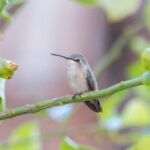Are you looking to add a touch of tranquility and beauty to your small garden? Look no further than these DIY water feature ideas for small gardens. Adding a water feature can instantly elevate the ambiance of your outdoor space, creating a sense of calm and serenity. Whether you have limited space or are on a budget, there are plenty of creative and practical ways to incorporate a water feature into your small garden.
A well-designed water feature can bring numerous benefits to a small garden. Not only does it create a peaceful and relaxing atmosphere, but it also attracts wildlife and adds visual interest. In addition, the soothing sound of flowing water can help mask unwanted noise from nearby streets or neighbors. With careful planning and consideration, you can choose the perfect DIY water feature that complements your small garden while enhancing its overall charm.
When it comes to planning your DIY water feature, there are several factors to take into account. Considering the size and scale of your garden is crucial in determining the type of water feature that will best fit your space.
In addition, choosing the right location for your water feature is key in ensuring that it becomes a focal point without overwhelming the rest of your garden. Stay tuned as we explore different types of DIY water features suitable for small gardens and provide helpful tips on how to plan and execute your own project.
Planning Your DIY Water Feature
When it comes to planning your DIY water feature for a small garden, there are a few key considerations to keep in mind. First and foremost, you’ll want to take into account the size and scale of your garden.
If you have a very small space, you may need to opt for a more compact water feature, such as a tabletop fountain or a small pond. On the other hand, if you have a bit more room to work with, you could consider something larger, like a cascading waterfall or a tiered fountain.
Once you’ve determined the best size and style of water feature for your garden, you’ll need to think about the best location for it. Consider placing your water feature in an area where it will be easily visible and accessible, but also where it will complement the overall aesthetic of your garden.
You’ll also want to take into account factors such as sunlight exposure and proximity to electrical outlets if your water feature requires any sort of power source.
Location Considerations
When deciding on the location for your DIY water feature, think about how it will fit into the existing layout of your garden. Will it be a focal point at the center of your space, or tucked away in a cozy corner? How will it interact with existing plants and hardscaping elements? These considerations can help ensure that your water feature feels like a natural and harmonious addition to your garden.
Size and Scale Planning
The size and scale of your DIY water feature should complement the size of your garden. A small courtyard may benefit from a vertical water wall that doesn’t take up much floor space, while a larger backyard might accommodate a modest-sized pond with aquatic plants. Careful planning is essential to ensure that the proportions feel balanced and appropriate within the context of your space.
Overall, thoughtful planning is key when embarking on a DIY water feature project for your small garden. Taking into consideration factors such as size, scale, location, and design will help ensure that your water feature enhances the beauty and tranquility of your outdoor space while being practical and sustainable at the same time.
Types of DIY Water Features
When it comes to incorporating DIY water feature ideas for small gardens, there are several options to choose from. Fountains, ponds, and water walls are some of the most popular choices for adding a touch of tranquility to a compact outdoor space. Each type of water feature has its own unique benefits and considerations, so it’s important to carefully assess your garden’s layout and your personal preferences before making a decision.
Fountains are an excellent choice for small gardens due to their versatility and ability to fit into tight spaces. Whether you opt for a standalone fountain or a wall-mounted design, fountains can provide soothing sights and sounds that add an element of relaxation to your garden.
On the other hand, ponds can also be incorporated into small garden spaces with the use of preformed liners or containers. While they require more maintenance and planning, ponds offer the opportunity to introduce aquatic plants and wildlife into your garden.
Water walls are another compelling option for DIY enthusiasts looking to create a unique focal point in their small garden. These vertical features can be built using various materials such as stone, metal, or acrylic panels, allowing for creativity in design. The gentle cascade of water down a vertical surface adds an elegant touch to any outdoor space.
Overall, each type of water feature offers its own set of advantages and challenges, so take the time to consider which option best suits your small garden before beginning your DIY project.
| Type of Water Feature | Benefits | Considerations |
|---|---|---|
| Fountains | Versatile and space-efficient; provides soothing sights and sounds | Regular maintenance required; careful consideration of location needed |
| Ponds | Opportunity to introduce aquatic plants and wildlife; unique visual appeal | Requires more planning and maintenance; may not be suitable for all small gardens |
| Water Walls | Creative design possibilities; elegant visual impact | May require specialized construction materials; potential for increased maintenance needs |
Materials and Supplies
When planning to create a DIY water feature for a small garden, it’s essential to gather the necessary materials and supplies. The type of water feature you choose will determine the specific items you need, but there are some basic materials that are common across different types of water features.
Fountain Materials
For those interested in adding a fountain to their small garden, some essential materials include a water pump, tubing, a basin or reservoir to hold the water, and decorative elements such as stones or ceramic pieces. Additionally, you may need waterproof sealant to ensure that your fountain doesn’t leak.
Pond Supplies
If creating a small pond is more your style, you’ll need a pond liner or pre-formed plastic pond mold, a filtration system to keep the water clean, and aquatic plants. Rocks and gravel for the edges of the pond can also enhance its natural appearance.
Water Wall Components
For those considering a water wall as their DIY project, stainless steel or copper troughs are often used as containers for the flowing water. You’ll also need a submersible pump to circulate the water upward and various fittings for connecting the troughs together.
In addition to these specific materials and supplies, it’s important to have tools on hand such as shovels, spades, and levels. When sourcing these items, consider looking for affordable and sustainable options. Many DIY enthusiasts find success by repurposing items or purchasing second-hand materials from local salvage yards or online marketplaces specializing in construction supplies. By being resourceful in gathering your materials and supplies, you can create an environmentally friendly DIY water feature for your small garden.
Step-by-Step Instructions
Building a DIY water feature for your small garden can be a rewarding and enjoyable project. To get started, it’s essential to plan out the process and gather all the necessary materials and supplies. Here are some step-by-step instructions to help you create your own beautiful water feature:
1. Choose the Type of Water Feature: The first step is to decide on the type of water feature you want to create. Whether it’s a bubbling fountain, a small pond, or a cascading water wall, consider the space available in your garden and how each type will fit into the overall design.
2. Gather Materials: Once you’ve decided on the type of water feature, gather all the necessary materials and supplies. This may include a water pump, tubing, waterproof liner, stones or pebbles, and decorative elements such as ceramic pots or statues. Consider sourcing sustainable materials to minimize environmental impact.
3. Determine Location: Find the perfect spot in your garden for your water feature. Take into account factors such as sunlight exposure, proximity to electrical outlets (for pumps), and visibility from different areas of the garden.
4. Construct the Water Feature: Following manufacturer instructions if using pre-made components, start constructing your water feature by laying down the liner or basin, positioning rocks or other decorative elements, and installing the pump and tubing. This is where creativity comes into play – experiment with different arrangements until you achieve your desired look.
5. Add Water and Test: Once everything is in place, fill your water feature with clean water and test the pump to ensure proper functionality. Make any necessary adjustments before adding finishing touches like aquatic plants or lighting.
By following these step-by-step instructions and getting creative with your DIY water feature ideas for small gardens, you can transform your outdoor space into a tranquil oasis that brings joy and relaxation to both yourself and others who visit your garden.
Maintenance and Care
Once you have successfully built your DIY water feature for your small garden, it is important to prioritize its maintenance and care to ensure its longevity and functionality. Regular upkeep will not only keep your water feature looking beautiful but also prevent any potential issues that may arise over time. By following a few simple guidelines, you can easily maintain your water feature with minimal effort.
First and foremost, it is crucial to keep the water clean and free of debris. This can be achieved by regularly removing any leaves, twigs, or other organic matter that may accumulate in the water. A skimmer or net can be used to quickly and efficiently remove surface debris, while a small pump filter can help maintain the overall cleanliness of the water.
In addition to keeping the water clean, proper care should also be taken to ensure the functionality of any pumps or filters that are part of your DIY water feature. Regularly inspecting these components for any signs of wear and tear and performing necessary maintenance or replacements will help keep your water feature running smoothly.
Lastly, it is essential to monitor the water levels in your feature, especially during hot and dry weather. Ensure that there is always enough water to keep the pump running smoothly without burning out. By maintaining these basic care practices, you can enjoy your DIY water feature for years to come.
By implementing these maintenance measures and caring for your DIY water feature properly, you can ensure a healthy and thriving addition to your small garden. With regular attention and care, you can enjoy the sights and sounds of a beautiful water feature right in your own backyard.
Design and Aesthetic Considerations
When it comes to incorporating a DIY water feature into a small garden, design and aesthetic considerations play a crucial role in achieving a visually appealing and harmonious outdoor space. Here are some ideas and tips to help you enhance the overall look of your water feature and seamlessly integrate it into your garden:
- Size and Scale: When designing a water feature for a small garden, consider the size and scale of the space. Opt for a water feature that complements the size of your garden without overpowering it. A small fountain or cascading waterfall can add a tranquil touch without overwhelming the area.
- Natural Elements: Incorporating natural elements such as stones, pebbles, and driftwood can provide an organic and seamless transition between your water feature and the surrounding garden. Create a natural-looking edge around your pond or fountain using carefully placed rocks or boulders.
- Plant Life: Integrate plant life around your water feature to create a lush and inviting atmosphere. Consider adding aquatic plants like lilies or lotus flowers to a pond, or use moisture-loving plants around a fountain to soften its edges.
- Lighting: Proper lighting can accentuate your DIY water feature at night and create an enchanting ambiance in your garden. Install subtle LED lights around the perimeter of your pond or fountain to illuminate the water feature without overpowering the space.
- Visual Focal Point: Use your DIY water feature as a focal point in your small garden by strategically placing it within view from key vantage points. Consider creating visual interest with seating areas positioned near the water feature to encourage relaxation and contemplation.
By carefully considering these design and aesthetic elements, you can create a DIY water feature that not only adds beauty but also seamlessly integrates into the overall design of your small garden. With attention to detail, you can make your water feature an enchanting focal point that enhances the tranquility and allure of your outdoor space.
Inspirational Examples
If you’re looking for inspiration for DIY water feature ideas for small gardens, look no further. Many creative gardeners have successfully implemented beautiful and functional water features in their limited outdoor spaces. Whether you have a tiny patio or a compact backyard, there are plenty of options to consider. Here are some inspirational examples to spark your creativity:
- Mini Fountain: A small tabletop fountain can add a touch of tranquility to even the tiniest of gardens. Using materials such as ceramic pots, pebbles, and a small water pump, you can create a charming mini fountain that brings the soothing sound of flowing water to your outdoor space.
- Container Pond: If you’re short on space but still want the benefits of a water feature, consider creating a container pond. Using a large planter or half barrel, you can create a mini ecosystem with aquatic plants and small fish. This DIY water feature not only adds visual interest but also attracts beneficial wildlife to your garden.
- Wall-Mounted Water Feature: For those with very limited floor space, a wall-mounted water feature can be an excellent solution. A simple DIY water wall made from stacked stone or repurposed materials can become a stunning focal point in your small garden while adding the soothing sounds of cascading water.
These are just a few examples of how DIY water features for small gardens can elevate your outdoor space. With some creativity and basic DIY skills, you can transform even the smallest garden into a peaceful oasis with the addition of a carefully designed water feature. Whether you opt for a simple fountain or an elaborate pond, the possibilities are endless for creating your own unique oasis at home.
Conclusion
In conclusion, adding a DIY water feature to your small garden can bring numerous benefits, from creating a relaxing and soothing atmosphere to attracting wildlife and enhancing the visual appeal of your outdoor space.
By planning the size and scale of your garden, determining the best location for your water feature, selecting the right type of feature, sourcing affordable materials, and following step-by-step instructions, you can easily create a beautiful water feature that fits perfectly in your small garden.
When it comes to maintaining and caring for your DIY water feature, remember to prioritize proper upkeep to ensure its longevity. Additionally, consider design and aesthetic elements to enhance the overall look of your garden. By incorporating your water feature into the existing design of your small garden, you can create a cohesive and visually appealing outdoor space.
As showcased by real-life examples of stunning DIY water features in small gardens, there are countless creative possibilities when it comes to incorporating a water feature into a limited outdoor area. Whether it’s a simple fountain or an intricate pond, there are endless opportunities to get creative with DIY water feature ideas for small gardens. So don’t hesitate to embark on your own project and bring the tranquility and beauty of water into your outdoor oasis.

Welcome to my gardening blog! I am passionate about plants and enjoy sharing my knowledge and experiences with others. In this blog, I will write about everything related to gardening, from tips on how to get started to updates on my own garden projects.





